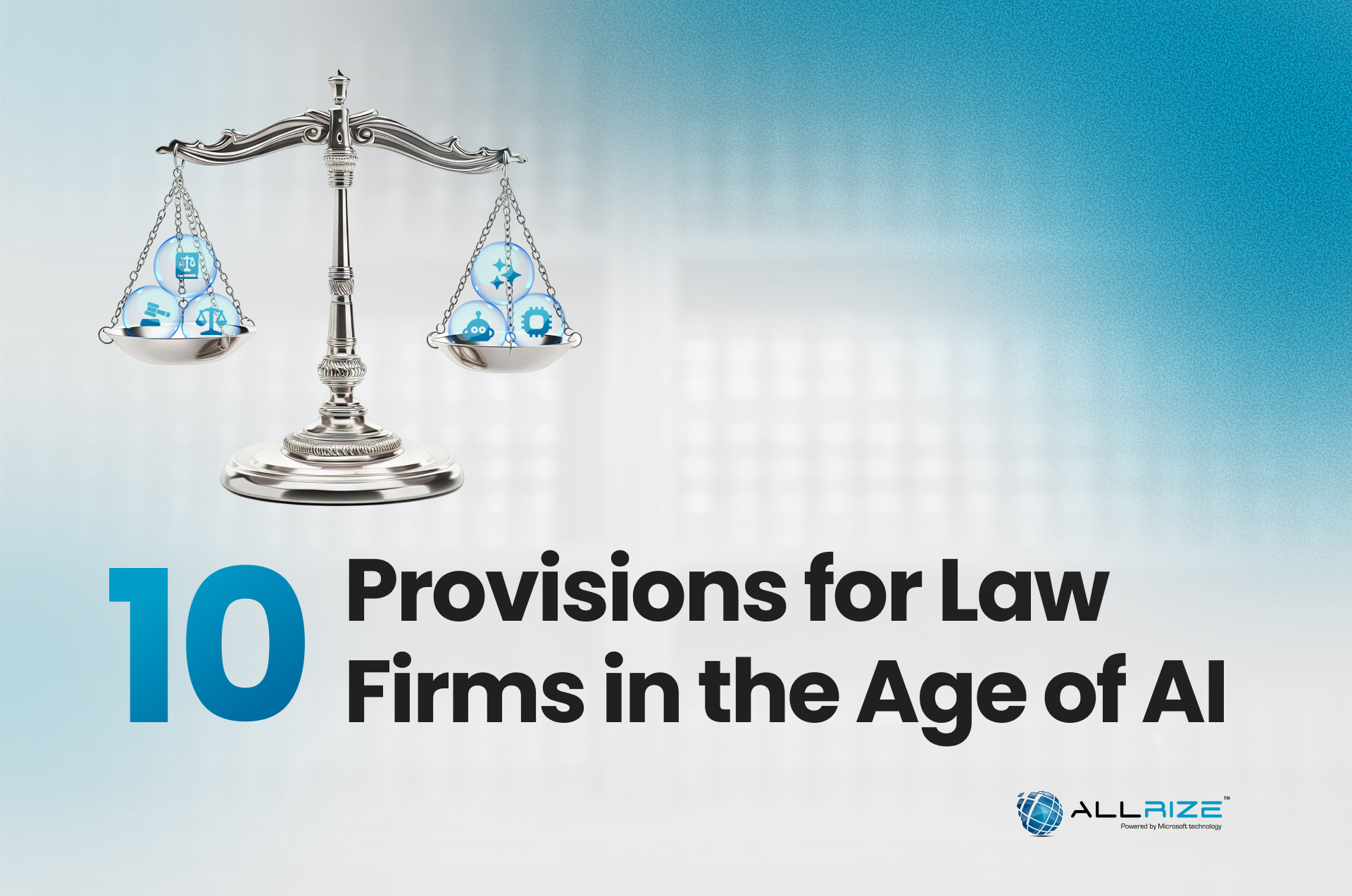As artificial intelligence tools become more deeply embedded in legal work, law firms face a new imperative: setting guardrails for responsible use. The potential of AI is exciting, but so are the ethical, operational, and reputational risks if used improperly. Today, implementing and enforcing a thoughtful AI policy is essential.
Here’s a breakdown of what should be included in a law firm’s AI policy and why each element matters:
1. Purpose: Setting the Tone for Responsible Use
Your policy should start with a clear purpose. This sets the foundation for responsible AI use and communicates that the firm takes innovation seriously, but not at the expense of ethics or client trust. Defining the “why” up front reinforces accountability and frames AI as a tool that supports, not replaces, legal judgment.
2. Scope: Clarifying Who It Applies To
From partners to interns to third-party vendors, everyone needs to know that the policy applies to them. AI use is no longer limited to tech departments; it can assist in research, drafting, admin, and marketing. By defining the scope clearly, firms reduce the risk of unauthorized or inconsistent use.
3. Approved Uses of AI
This section is critical to empower your team to reap the benefits of AI while also setting clear expectations. Listing specific approved use cases helps normalize responsible AI use and removes ambiguity in what is and isn’t allowed. Firm leadership should invest time in determining what activities are permitted and under what circumstances.
4. Prohibited Uses of AI
AI can’t practice law, and your policy should say so plainly. Prohibiting uses like giving legal advice, generating final legal documents, or uploading sensitive client data without vetting ensures you’re not opening the firm up to malpractice or ethics violations.
5. Ethical Standards
Lawyers remain bound by professional ethics rules, whether AI is involved or not. The use of AI poses several unique ethical risks including confidentiality, competence, and candor with the court. This provision should make clear that all AI use must comply with guidance from the ABA and relevant state bars, emphasizing that attorneys are still fully responsible for ensuring that their actions meet ethical and legal standards.
6. Client Confidentiality & Data Security
Client confidentiality is a cornerstone of the legal profession, and easily compromised if AI tools are used carelessly. This part of the policy should outline how and when AI tools may be used with client data, and set security standards for AI tools.
7. Governance and Oversight
Firms should establish who is ultimately in charge of AI decisions. This section should assign governance responsibilities to leadership and call for risk assessments before adopting new tools. It should also clearly state who is responsible for oversight and mandate regular audits to ensure the policy is enforced.
8. Accountability and Reporting
All AI-assisted work remains subject to the same standards of care, diligence, and legal ethics as traditional legal services. This provision should make clear that attorneys are responsible for ensuring the accuracy, reliability, and appropriateness of any content produced using AI. It should also require employees to report identified errors or risks to ensure all users of AI in the firm share accountability for responsible use.
9. Training
Effective policies aren’t just about setting rules, they need to be supported by training and education. Mandatory training ensures your team understands both the power and the pitfalls of AI and gives them the confidence to use the tools properly. This provision should list all required training and set expectations for ongoing AI education.
10. Policy Violations
AI policies can ring hollow if there are no enforcement mechanisms in place. Stating that violations can lead to discipline or termination emphasizes the seriousness of AI misuse, especially if it compromises client interests or legal standards. This also shows regulators and clients that your firm takes compliance seriously.
Final Thoughts
To get the most out of AI, firms need to fully invest in the training and processes that will unlock new ways of working. As AI adoption accelerates, the firms that will lead are the ones that are open-minded but intentional about experimenting with new technology. While policies are just one part of a responsible AI strategy, a well-drafted AI policy protects your clients, supports your attorneys, and keeps you on the right side of professional responsibility. Check out our full model AI policy here.

